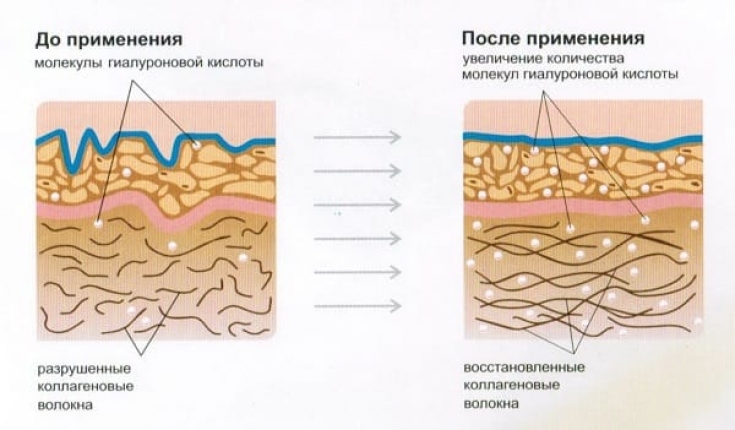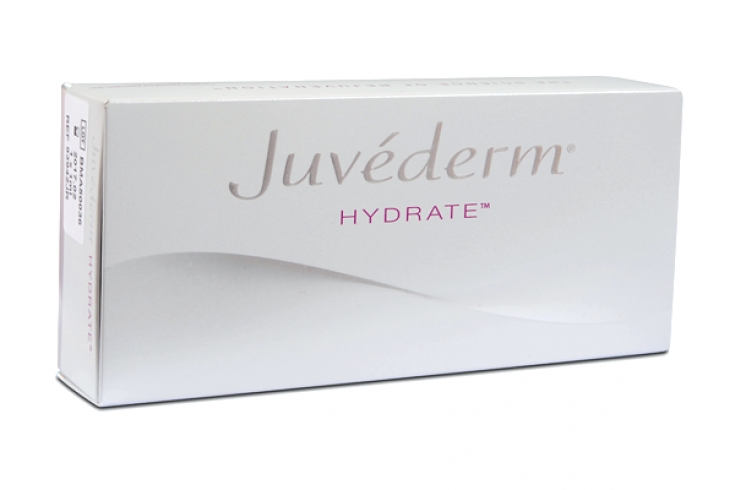Aging is a complex multifactorial process that affects every cell in the human body, and the skin is no exception. Clinically, aging skin is characterized as thin, dry, with reduced elasticity.
Histological changes associated with skin aging include damage to elastin fibers, as well as a decrease in collagen biosynthesis, changes in hydrolipid balance.
Biorevitalization of the face is aimed at slowing down the withering processes. The doctor of the highest category, dermatovenereologist, cosmetologist Oksana Erofeeva spoke about the effects of this procedure on the skin, and what drugs should be preferred for its implementation, exclusively for estet-portal.com.
Effective biorevitalization of the face: mainfeatures Mesotherapy or biorevitalization, described in France by Michel Pistor in 1958, is one of the most popular methods of skin rejuvenation. The essence of the method is to carry out transdermal injections of vitamins, enzymes, hormones, hyaluronic acid and natural plant extracts to activate the biosynthetic ability of fibroblasts.
The main purpose of biorevitalization – this is to replenish the moisture balance of the skin and increase the production of collagen and elastin.
Hyaluronic acid based products such as Juvederm® HYDRATE™ from
Allergan not only provide deep skin hydration, but also create the most favorable environment for fibroblasts to work, thereby increasing collagen synthesis. Secrets of effective face biorevitalization: injection depth
· intraepidermal technique;
· papular, which involves the introduction of the drug at the level of transition of the epidermis to the dermis;
· overlay method, in which injections are carried out at an angle of 30-60 ° to a depth of 2-4 mm;
· two-point injection into the deep dermis.
During biorevitalization, the doctor is faced with the task of saturating the skin with hyaluronic acid, which, pulling water along with it, will provide long-term hydration. Biorevitalization, in contrast to mesotherapy, is much more effective in combating age-related changes, and therefore, special emphasis should be placed on the places where mimic wrinkles form during the administration of the drug.
The key to beauty and youth: choosing a product to work with skin quality Tissue reaction to facial biorevitalization procedure
The main goals of the biorevitalization procedure include:
· increasing the biosynthetic capacity of fibroblasts;
· restoration of the optimal physiological environment of the skin;
· increased activity of skin cells;
· hydration;
· activation of the synthesis of collagen, elastin and hyaluronic acid.

Biorevitalization before and after: how not to spoil the results of the procedure
Choice of a preparation for the facial biorevitalization procedure
Biorevitalization preparations must be effective, safe, and provide the longest possible duration of the result.

company "Allergan" in addition to hyaluronic acid, it also includes mannitol. This substance is a powerful antioxidant, thanks to which it protects hyaluronic acid from premature destruction.
The result becomes noticeable after 2-3 procedures, the skin looks much fresher and more hydrated.
To consolidate the effect of biorevitalization, a maintenance course of therapy is required – 1 treatment every 2-3 months, depending on the individual characteristics of the patient's skin.
Thus, biorevitalization allows you to "refresh" the patient's skin, ensuring its deep hydration. This method is especially relevant in the conditions of a metropolis, when skin care products no longer cope with their task. xxxx>







Add a comment